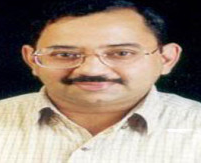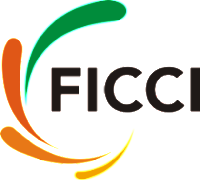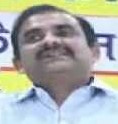The Union Cabinet chaired by the Hon’ble Prime Minister Shri Narendra Modi, has today given its approval to a new scheme moved by the Ministry of Power – Ujwal DISCOM Assurance Yojna or UDAY. UDAY provides for the financial turnaround and revival of Power Distribution companies (DISCOMs), and importantly also ensures a sustainable permanent solution to the problem.
UDAY is a path breaking reform for realizing the Hon’ble Prime Minister’s vision of affordable and accessible 24×7 Power for All. It is another decisive step furthering the landmark strides made in the Power sector over the past one and a half years, with the sector witnessing a series of historic improvements across the entire value chain, from fuel supply (highest coal production growth in over 2 decades), to generation (highest ever capacity addition), transmission (highest ever increase in transmission lines) and consumption (over 2.3 crore LED bulbs distributed).
The weakest link in the value chain is distribution, wherein DISCOMs in the country have accumulated losses of approximately Rs. 3.8 lakh crore and outstanding debt of approximately Rs. 4.3 lakh crore (as on March, 2015). Financially stressed DISCOMs are not able to supply adequate power at affordable rates, which hampers quality of life and overall economic growth and development. Efforts towards 100% village electrification, 24X7 power supply and clean energy cannot be achieved without performing DISCOMs. Power outages also adversely affect national priorities like “Make in India” and “Digital India”. In addition, default on bank loans by financially stressed DISCOMs has the potential to seriously impact the banking sector and the economy at large.
Due to legacy issues, DISCOMs are trapped in a vicious cycle with operational losses being funded by debt. Outstanding debt of DISCOMs has increased from about Rs. 2.4 lakh crore in 2011-12 to about Rs. 4.3 lakh crore in 2014-15, with interest rates upto14-15%.
UDAY assures the rise of vibrant and efficient DISCOMs through a permanent resolution of past as well as potential future issues of the sector. It empowers DISCOMs with the opportunity to break even in the next 2-3 years. This is through four initiatives (i) Improving operational efficiencies of DISCOMs; (ii) Reduction of cost of power; (iii) Reduction in interest cost of DISCOMs; (iv) Enforcing financial discipline on DISCOMs through alignment with State finances.
Operational efficiency improvements like compulsory smart metering, upgradation of transformers, meters etc., energy efficiency measures like efficient LED bulbs, agricultural pumps, fans & air-conditioners etc. will reduce the average AT&C loss from around 22% to 15% and eliminate the gap between Average Revenue Realized (ARR) & Average Cost of Supply (ACS) by 2018-19.
Reduction in cost of power would be achieved through measures such as increased supply of cheaper domestic coal, coal linkage rationalization, liberal coal swaps from inefficient to efficient plants, coal price rationalization based on GCV (Gross Calorific Value), supply of washed and crushed coal, and faster completion of transmission lines. NTPC alone is expected to save Rs. 0.35 / unit through higher supply of domestic coal and rationalization / swapping of coal which will be passed on to DISCOMs / consumers.
Financial liabilities of DISCOMs are the contingent liabilities of the respective States and need to be recognized as such. Debt of DISCOMs is de facto borrowing of States which is not counted in de jure borrowing. However, credit rating agencies and multilateral agencies are conscious of this de facto debt in their appraisals. In line with the above and similar observations of Fourteenth Finance Commission, States shall take over 75% of DISCOM debt as on 30 September 2015 over two years – 50% of DISCOM debt shall be taken over in 2015-16 and 25% in 2016-17. This will reduce the interest cost on the debt taken over by the States to around 8-9%, from as high as 14-15%; thus improving overall efficiency. Further provisions for spreading the financial burden on States over three years, will give States flexibility in managing the interest payment on the debt taken over, within their available fiscal space in the initial few years. A permanent resolution to the problem of DISCOM losses is achieved by States taking over and funding at least 50% of the future losses (if any) of DISCOMs in a graded manner.
UDAY is a shining example of the utilization of the best principles of cooperative and competitive federalism and has been evolved through discussions at the highest levels with multiple States. Adopting UDAY is optional for States, but provides the fastest, most efficient and financially most feasible way for providing 24X7 Power for All. It will be operationalized through a tri-partite agreement amongst the Ministry of Power, State Government and the DISCOM.
UDAY accelerates the process of reform across the entire power sector and will ensure that power is accessible, affordable and available for all. UDAY truly heralds the uday (rise), of a ‘Power’ful India.
Salient Features of UDAY
· States shall take over 75% of DISCOM debt as on 30 September 2015 over two years – 50% of DISCOM debt shall be taken over in 2015-16 and 25% in 2016-17.
· Government of India will not include the debt taken over by the States as per the above scheme in the calculation of fiscal deficit of respective States in the financial years 2015-16 and 2016-17.
· States will issue non-SLR including SDL bonds in the market or directly to the respective banks / Financial Institutions (FIs) holding the DISCOM debt to the appropriate extent.
· DISCOM debt not taken over by the State shall be converted by the Banks / FIs into loans or bonds with interest rate not more than the bank’s base rate plus 0.1%. Alternately, this debt may be fully or partly issued by the DISCOM as State guaranteed DISCOM bonds at the prevailing market rates which shall be equal to or less than bank base rate plus 0.1%.
· States shall take over the future losses of DISCOMs in a graded manner and shall fund them as follows:
Year
2015-16
2016-17
2017-18
2018-19
2019-20
2020-21
Previous Year’s DISCOM loss to be taken over by State
0% of the loss of 2014-15
0% of the loss of 2015-16
5% of the loss of 2016-17
10% of the loss of 2017-18
25% of the loss of 2018-19
50% of the previous year loss
· State DISCOMs will comply with the Renewable Purchase Obligation (RPO) outstanding since 1st April, 2012, within a period to be decided in consultation with Ministry of Power.
· States accepting UDAY and performing as per operational milestones will be given additional / priority funding through Deendayal Upadhyaya Gram Jyoti Yojana (DDUGJY),Integrated Power Development Scheme (IPDS), Power Sector Development Fund (PSDF) or other such schemes of Ministry of Power and Ministry of New and Renewable Energy.
· Such States shall also be supported with additional coal at notified prices and, in case of availability through higher capacity utilization, low cost power from NTPC and other Central Public Sector Undertakings (CPSUs).
· States not meeting operational milestones will be liable to forfeit their claim on IPDS and DDUGJY grants.
· UDAY is optional for all States. However, States are encouraged to take the benefit at the earliest as benefits are dependent on the performance.












